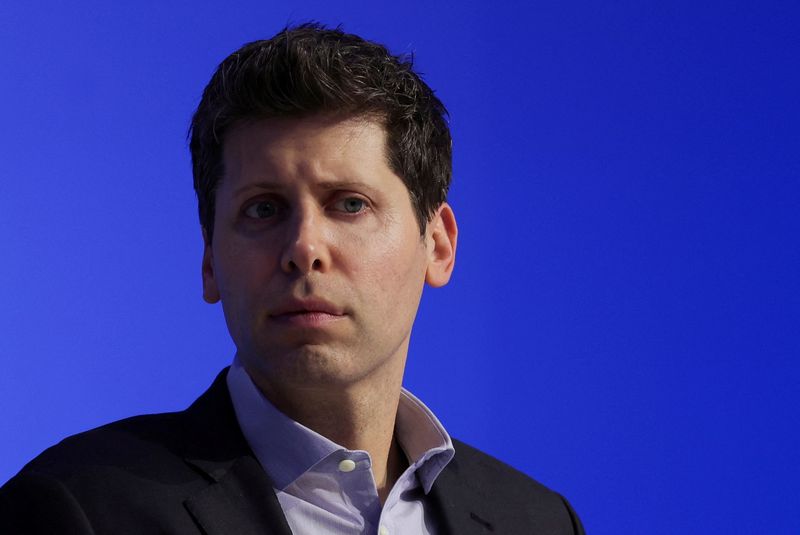IonQ reaches 1,000 patents milestone with new quantum computing grants
Investing.com -- OpenAI CEO Sam Altman says GPT-5 is coming this summer, and it could be the most pivotal AI release yet. The upcoming model is expected to consolidate OpenAI’s flagship capabilities, namely GPT-4o’s natural language versatility and o3’s edge in code and scientific reasoning, into a single, more powerful system.
Speaking on the company’s newly launched official podcast, Altman hinted GPT-5 may represent more than just a performance upgrade. It could mark OpenAI’s first real step toward unified, agent-like models, a move that would bring it closer to the nonprofit’s artificial general intelligence (AGI) goal. “I think we are near the end of this current mountain,” he said. “I am excited to just get to GPT-5, GPT-6, and I think that’ll be easier for people to use.”
He also teased a potential shift in how OpenAI rolls out future models. Rather than keeping to naming conventions such as GPT-4, 4-turbo, 4o, and o3, he floated the idea of ditching major versioning altogether in favor of flagship updates. “Should we just keep calling those GPT-5, right? GPT-4o? Or should we call those 51253?” Altman asked, signaling internal debate over what the next phase of evolution looks like, or what to even call it.
That naming confusion isn’t just internal. The current model lineup already has users asking which version they should use and for what purpose. With capabilities split between multiple variants, even seasoned developers can feel lost. “That’s the challenge… even if you’re technically inclined,” Altman admitted.
GPT-5, as described, could simplify that landscape. By incorporating now-standard features like memory, multimodality, and reasoning into a single, integrated system, users wouldn’t need to toggle between specialized models. “More sophisticated memory is probably my favorite recent feature,” Altman said, highlighting its ability to personalize interactions and boost responsiveness over time.
The vision behind GPT-5 isn’t just about capability... It’s also about positioning. OpenAI is clearly eyeing a future where its models don’t just respond to prompts but operate more like digital agents, able to reason, plan, and interact across contexts. That trajectory could bring it into more direct competition with search giants like Google (NASDAQ:GOOGL), which Altman bluntly described as “an ad tech company.”
Trust, he suggested, could be OpenAI’s differentiator. “People have a very high degree of trust in ChatGPT,” Altman said. “I think if we started modifying the output… in exchange for who is paying us more, that would feel really bad.”
While Altman shut down the idea of sponsored responses within the model’s output, he acknowledged the business model still needs to evolve. One option? Optional monetization layers that don’t compromise model neutrality. “Maybe there could be, like, ads outside the transaction stream… that are still really great,” he said.
With the launch window now aimed for summer, GPT-5 is shaping up to be more than just another iteration. With a push toward unified intelligence, cleaner user experiences, and deeper integration across tasks, onlookers expect that GPT-5 could become the backbone of a new digital ecosystem.
